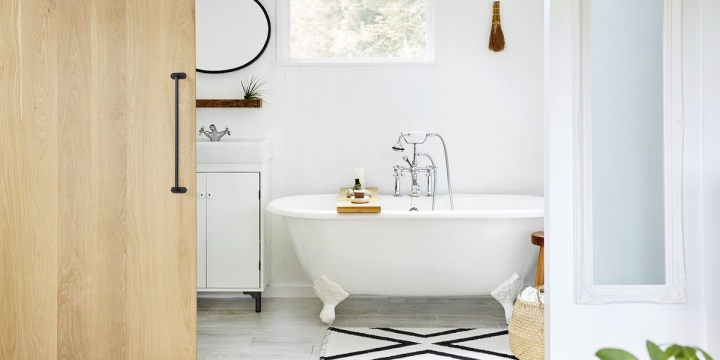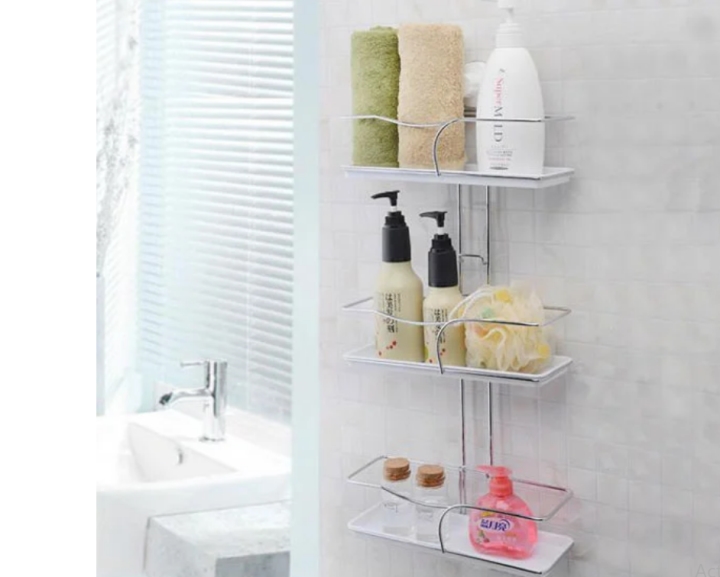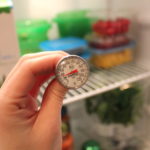Most people use the bathroom every day, so this space is always in a very humid state. Even after a long period of use, there will be some moldy odors in the bathroom that can be unpleasant. Therefore, many people usually leave the bathroom door open after bathing to allow for better ventilation and air circulation. However, this is completely wrong.
Should you close or leave the bathroom door open when not in use?
Currently, bathrooms are often designed with attached toilets, so some people want to close the door after use to prevent bacteria, unpleasant odors, and mold. While others prefer to leave the door open for a more well-ventilated bathroom.

Should you close or leave the bathroom door open when not in use?
In reality, the bathroom is a poorly ventilated area, so it is susceptible to bacterial growth that is difficult to see with the naked eye. Especially after each use, the bacteria in the air will increase significantly along with the production of unpleasant smells. If we leave the bathroom door open for ventilation, these bacteria and odors can spread to other rooms, which is harmful to the health of the family.
Therefore, after using the bathroom, you should:
Close the door and turn on the exhaust fan for ventilation. You can also open windows in the house, not only to keep the room dry but also to prevent bacteria and moisture from entering the room.
If the space inside the house is too small to have a separate bathroom, you can create a shower curtain to separate the dry/wet areas. This not only helps maintain the dryness of the room but also extends the life of equipment and cabinets in the bathroom.
Things not to keep in the bathroom
Cotton pads, sanitary napkins, toilet paper: These materials are prone to mold and bacterial contamination, which can affect your health. Store feminine hygiene products in a dry, well-ventilated place to protect your health.
Medications: You should not keep medications in cabinets or shelves in the bathroom. Temperature and humidity changes can alter the chemical composition of the products.
Metal personal hygiene tools such as tweezers, nail clippers, etc., can rust if you place them in a damp bathroom.
Hairdryers can cause fires and electrical shocks if you place and use them in the bathroom.
Makeup: Lipsticks, powders, foundation creams, and all makeup products should be kept in a place with stable temperature and good air circulation. Therefore, the bathroom – a place with constantly changing temperature and high humidity – is not suitable for displaying makeup. If you don’t want to ruin these items, move them to the bedroom or put them in a dedicated makeup bag.
Jewelry: Jewelry such as earrings, necklaces, rings, etc., should not be kept in the bathroom. The high humidity in the bathroom will accelerate the oxidation process and damage your jewelry.
Razors: Steam and high humidity can easily corrode and rust the razor blade. It’s better to store razors in a plastic bag and avoid moist areas.
Cotton swabs: Many people have the habit of keeping cotton swabs in the bathroom for convenience in cleaning and drying their ears after bathing. However, this is not recommended. The first risk is that the cotton swabs can get wet if water accidentally splashes on them. Second, soap and bacteria can cling to the cotton swabs, causing ear infections when used.
Pet litter boxes: Humidity can make the litter wet and disperse bacteria from the litter throughout the bathroom. Pet product manufacturers recommend placing pet litter in a well-ventilated, dry place.

Things and habits to avoid in the bathroom
Bad habits in the bathroom that harm health
Using old bath sponges: Bath sponges are only good when they are new because they help exfoliate dead skin cells. But if this item is used too many times, it becomes a harbor for harmful bacteria.
Lazy bathing: The body is protected from bacteria and acne when it is clean. However, bathing lazily, skipping certain parts of the body, especially the back, the soles of the feet, and behind the ears, will leave these areas dirty and contain more bacteria.
Leaving the toothbrush lying down: The bathroom is not the cleanest place in the house, and it is also an environment that harbors bacteria. The habit of leaving the toothbrush lying down after use can easily cause bacteria to contaminate it and cause illness.
Bringing electronic devices into the bathroom: Many studies have shown that as many as 90% of people bring their phones or electronic devices into the bathroom. This is a very bad habit because normally you wash your hands after using the bathroom, not your phone. Having that same phone on the dining table is no different than a germ reservoir.
Using face towels: Using face towels is not a good habit, especially for people with skin problems. The best way is to wash your hands, then use your hands to wash your face with face wash, and finally, use a towel to pat dry your face.
According to VTV.vn





































